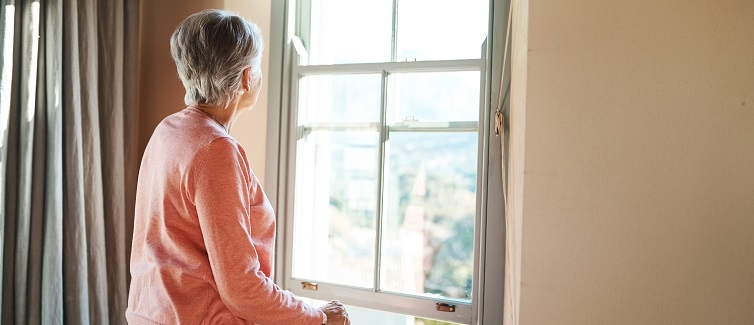Caring for a person who is living with Alzheimer’s disease can be difficult. Alzheimer’s is more than simply memory loss in the elderly. Alzheimer’s disease is a progressive condition that causes significant changes in a person’s everyday life. It may quickly affect a person’s memory in ways that make it hard for them to:
- Organize and make plans.
- Do simple calculations (i.e., making change or leaving a tip).
- Manage household tasks.
- Perform activities of daily living (ADLs).
As Alzheimer’s progresses further, it can affect a person’s ability to walk, swallow, and speak.
According to the Alzheimer’s Association, in 2021 more than 6 million people in the U.S. currently are living with the Alzheimer’s. More than 11 million Americans provide unpaid care for people with Alzheimer’s or other dementias. These caregivers provide an estimated 15.3 billion hours of care valued at nearly $257 billion.
Caring for a Person with Alzheimer’s Disease
As a caregiver for a person living with Alzheimer’s, you will become the expert on your family member’s condition. Here are some tips for getting up to speed:
Be informed. It’s important for you and others who will be caring for your family member to learn as much about they can about the disease and its progression. This will help you prepare yourselves for various challenges during the different stages of the disease. Remember: When challenges arise, it’s Alzheimer’s disease—not the person—that is responsible.
Discuss the future. In the early stages of the disease, individuals may be capable of participating in conversations about their future care. Take this time to learn about your loved one’s goals of care and appoint a power of attorney while he or she can still contribute.
Develop a consistent daily routine. Create a schedule that includes activities such as daily chores, personal care time, meal times, and special activities. Try not to stray from it by much. Small changes in the daily schedule can be disruptive to a person living with Alzheimer’s disease. As dementia progresses, the daily routine may need to be modified.
Schedule Activities Earlier. People living with Alzheimer’s and other forms of dementia may have problems sleeping or experience increased confusion, anxiety, agitation, pacing, and disorientation beginning at dusk and continuing throughout the night (referred to as sundowning). Try to schedule outings or other events earlier in the day so they are feeling their best.
Being a Healthy Caregiver
To be a good caregiver, you must take care of yourself. Neglecting self-care will not benefit your loved one and may take a serious toll on your health. To be a healthy caregiver, make an point to:
Manage your stress—Stress can have negative effects on your mind and body. There are many symptoms of caregiver stress, including:
- Denial
- Anger
- Social withdrawal
- Anxiety
- Depression
- Exhaustion
- Sleeplessness
- Irritability
- Lack of concentration
Be aware of and learn how to manage the symptoms of stress so you can prevent caregiver burnout. Research stress reducing techniques and resources for caregivers. Try to ask for help when you need it.
Visit your doctors annually. Keep up with any health screenings or physical exams you need. Let your doctor know that you are caring for a person living with dementia. Pay attention to exhaustion, stress, sleeplessness, or changes in your everyday behavior. If providing physical assistance, pay attention to muscle and bone injuries.
Treat yourself kindly. Eat well and exercise. Make time for yourself and things you enjoy. Treat yourself the way you’d treat a good friend.
Find an Alzheimer’s Support Group. Consider joining a support group for Alzheimer’s and dementia caregivers. A support group can help you:
- Gain information and insight to better understand the disease
- Learn coping strategies
- Share experiences
- Obtain and offer support
Check out this list to find dementia caregiver support groups near you.
Editor's Note: This gallery was originally published on , and was last reviewed on .
